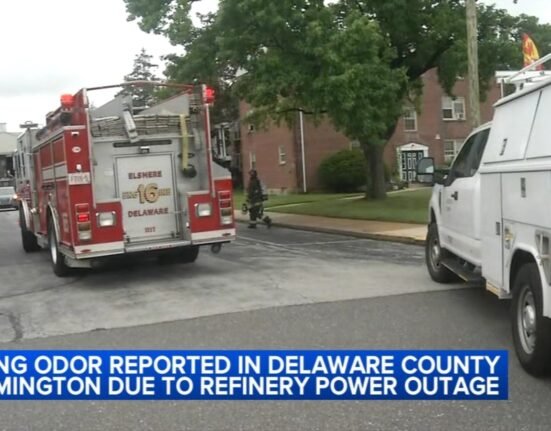Decision by Finance Minister Jack Chambers will be seen as a major election sweetener for farmers, but also a win for land speculators hoarding sites in the hope the value will increase in line with record house prices
Mr Harris said he listened to the “legitimate concerns” of farmers who faced their land being taxed despite it being used for agricultural purposes.
He said the three Government leaders agreed to delay the RZLT introduction and Department of Finance officials are drafting alternative legislation so active farmers are not impacted by the new tax.
“As long as I’m Taoiseach no active farmer will pay Residential Zoned Land Tax – simple as,” the Taoiseach said at a Fine Gael event promoting supports for families.
“I’m absolutely committed to the tax but I need the Department of Finance to listen to the real and legitimate concerns of farmers.
“It is offensive to tell a farmer they are a land hoarder when farming is such an important part of our economy,” he added.
The tax, which would see land zoned for residential development taxed at 3pc of its market value, was a government attempt to unlock more sites for housing construction and prevent speculators from hoarding serviced land.
It was announced in Budget 2022 and was due to come into effect next February, with tax bills due to be paid by May.
However, there was backlash among farmers whose land was zoned for residential development but was being used for agricultural purposes.
Farmers could apply to their local authorities to have their land rezoned, but a government source said the process “yielded only limited changes, with many active farmers still within scope”.
Mr Harris said the Irish Farmers Association’s (IFA) position on the RZLT is “very reasonable” because they differentiate between an active farmer and someone who claims to have farmland to avoid tax.
Meanwhile, Sinn Féin finance spokesperson Pearse Doherty said the decision to delay the tax is “disgraceful” while the housing crisis is on-going.
“This is a direct result of this government’s abject failure over the past three years to exempt actively farmed land from this tax,” he said.
“Sinn Féin has repeatedly raised this problem with the government for the past three years but no action was taken.
“That the government has again delayed this tax for another year is a boon to land hoarders and will only deepen their housing crisis,” he added.
This comes as the Government decided to defer the introduction of the RZLT for a year.
The decision by Finance Minister Jack Chambers will be seen as a major election sweetener for farmers who feared land they were working would be hit with significant taxes under the scheme.
However, it will also be a win for land speculators hoarding sites in the hope the value will increase in line with record levels of house prices.
Mr Chambers decided to pause and defer the tax for another 12 months following high-level discussions with Housing Minister Darragh O’Brien and Agriculture Minister Charlie McConalogue.
Mr Chambers and Mr O’Brien also agreed to revise the legislation so that it will permanently exclude farmers. This process will progress in tandem with the development of the National Planning Framework when it is published later this year.
A senior government source said there is considerable concern within the higher levels of the Coalition that the tax will place a disproportionate burden on active farmers whose land has not yet been de-zoned.
“This will be a key measure and priority for Fianna Fáil in the Budget to ensure we partner with farmers and rural communities. We must protect active farmland and food production systems from any disproportionate levy or tax,” the source said. “Many farmers have expressed concern that leaving this measure in place without intervention would put the viability of their farm at risk. Fianna Fáil will be ensuring this Budget addresses these concerns.”
Before the Dáil rose for the summer recess, the Fine Gael parliamentary party passed a motion committing to exempting farmers from the Residential Zoned Land Tax.
Former rural affairs minister Michael Ring, who tabled the motion, said farmers who use their land for food production are not property speculators or developers and should not be treated as such.
After the vote, Mr Ring said: “There was widespread agreement from colleagues and ministers that farmers should not be financially punished for a tax which was aimed at those who were sitting on idle land.
“Farmers are most certainly not doing that, they are critical to this country’s financial prosperity and well-being.”







